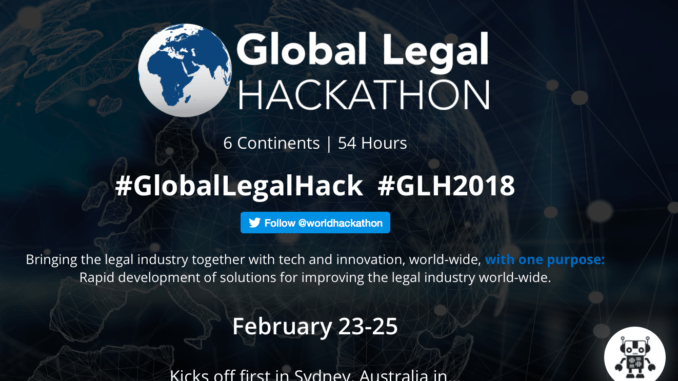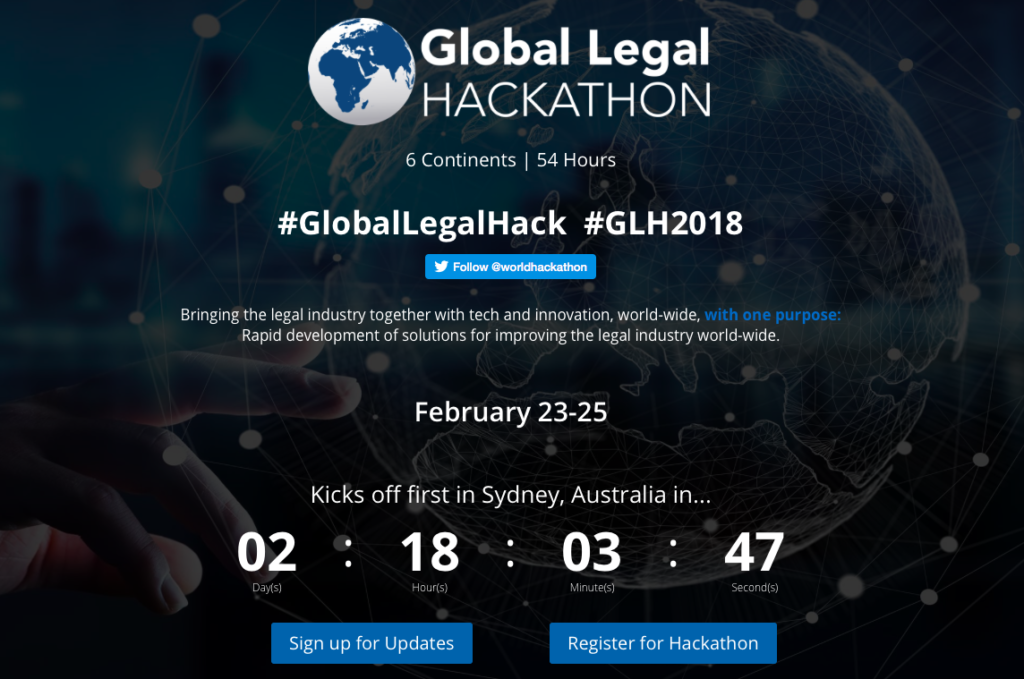
Legal blockchain pioneer, Integra Ledger, is to crowdsource the creation of new legal AI applications capable of reasoning during next weekend’s Global Legal Hackathon (GLH) by making use of IBM’s machine learning Watson Knowledge Studio system.
The ‘Cognitive Legal Challenge’, as it is being called, is part of a wider effort to show lawyers how rapidly their knowledge can be turned into working AI tools that can deliver real value.

The plan is the brainchild of Brian Kuhn and Shawna Hoffmann, the co-heads of IBM’s legal AI division. Kuhn and Hoffman are assisting Integra in facilitating the GLH at its New York City venue, which takes places at the headquarters of American Express on Feb 23 to 25.
Kuhn told Artificial Lawyer that the aim is to use the GLH weekend as a stage to show what IBM Watson’s Knowledge Studio machine learning platform can achieve in a short space of time and to create working AI reasoning tools, or ‘cartridges’.
The plan goes like this. Up to 100 lawyers will be given similar stacks of documents that cover certain types of US case law. The first examples will cover negligence under Civil Tort law.
Kuhn explained that during the hackathon the lawyers will review the documents and annotate and highlight the key aspects that lead to a case culminating in a certain decision. For example, lawyers will focus on issues such as duty of care and damage.
The results will be fed into the system, producing a machine learning model that will then – by using natural language processing – be able to consider a new negligence claim, pick out the key elements, compare them against the model, and then provide a reasoned answer to how the claim might go.
In short, the working knowledge of a group of lawyers will be crystalised into a ‘legal AI cartridge’ that can then be used by anyone who has access to it.
The plan is to also to enable Integra to build AI cartridges for other areas of law, such as deciding whether something would be considered as hearsay or not, given the evidence presented.
‘We want to demonstrate that training an AI system is not that difficult. You don’t need to be a data scientist to make use of data science,’ Kuhn explains.
‘We also want to address questions lawyers often have about AI training times. Although the models we produce will be refined later, the bulk of the training will take place during the GLH weekend,’ he added.
Kuhn said that the way he sees it, the legal knowledge capable of reasoning on a certain matter is the cartridge, like one would have in an old style video game console. The console is the law firm or business. But you can fit in any of hundreds of different cartridges into the console.
But, do lawyers want to make their knowledge accessible as cartridges? Kuhn notes that there is probably more focus on leveraging AI tech from the C-suite of Fortune 500 companies than among lawyers in private practice still, but that may change.
He notes that for high volume matters why wouldn’t a firm want to use the cartridge approach to legal reasoning? The margins are low for such process work, why not automate as much of the process as is reasonable to do so?
Moreover, he adds, we could see inhouse legal teams bringing in external law firms to help them create their own cartridges for certain legal tasks, i.e. the market may move in this direction in any case.
‘We have seen this already in the medical domain, for example with IBM’s oncology analysis work with experts from Sloan-Kettering,’ says Kuhn. This is the same, just with legal as the domain instead.

And, perhaps most fundamentally this promises to be the ‘Next Stage’ in legal AI development. For some time now the field has been dominated by doc review systems, which have been reading, comprehending and extracting information from unstructured documents. But, the next stage is then to create Reasoning Legal AI systems, which utilise that doc review capability.
One could say we have already started to see such efforts from companies such as ThoughtRiver which is analysing contracts for certain risks, or LegalSifter which is also comparing a certain type of document to a company’s playbook. The legal reasoning work done by CaseCrunch, such as in relation consumer rights claims, is another example of this movement into broader uses of AI. But, what Kuhn and IBM are looking at is something they see as universal, which can apply to every aspect of the law.
However, Kuhn concludes: ‘This is not practising law. It is not making the final decision. It is enhancing legal reasoning so that the end results are much better. ‘
Sounds exciting. Can’t wait until the GLH to see the results.
If you’d like to see a short video about IBM Watson’s Knowledge Studio, please check this out:
